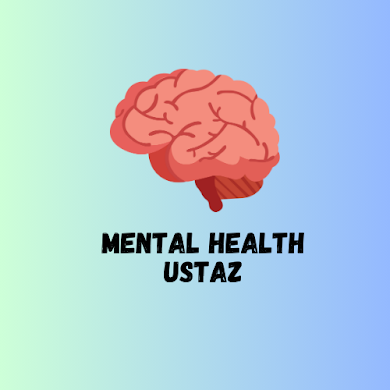Introduction:
Mental health resources for you and your loved ones are a vital component of our overall well-being, impacting our emotional and physical health. Whether you're facing mental health challenges or supporting a loved one through them, it's essential to have access to the right resources and support. In this comprehensive guide, we will delve into various mental health resources available to you and your loved ones. These resources are designed to offer assistance, guidance, and understanding during the journey of coping with mental health issues. Explore a range of options, from professional help to support groups, apps, and FAQs, as we strive to provide valuable insights into managing mental health effectively
Mental Health Resources for You and Your Loved Ones:
- **Professional Help (Psychotherapists, Psychiatrists, and Therapists):** Seeking professional support is often the initial step towards improving mental health. Mental health professionals are trained to provide therapy, counseling, and medication management. These experts can provide the insight and guidance necessary for recovery.
- **Support Groups:** Support groups offer a supportive environment where individuals experiencing similar mental health issues can connect and share their experiences. These groups create a sense of community, providing emotional support and valuable coping strategies.
- **Mental Health Apps:** In today's digital age, mental health apps are becoming increasingly popular. Apps like Headspace, Calm, and Talkspace offer meditation, therapy, and coping techniques at your fingertips, allowing you to take control of your mental health journey.
- **Online Resources:** The internet is a treasure trove of mental health information. Numerous websites and forums provide advice, information, and resources. When seeking online help, make sure to consult reputable sources and verify the information's credibility.
- **Educational Workshops and Seminars:** Many organizations and healthcare providers offer workshops and seminars on various mental health topics. Attending these sessions can provide valuable insights and equip you with essential tools to manage mental health issues effectively.
- **Crisis Hotlines:** In moments of crisis, helplines such as the National Suicide Prevention Lifeline (1-800-273-8255) are available 24/7 to provide immediate assistance, comfort, and support to those in need.
- **Books and Literature:** Self-help books and literature are widely available and offer guidance, coping strategies, and inspirational stories of recovery. Learning from the experiences of others can be a powerful source of hope and motivation.
- **Community Resources:** Local community centers, religious institutions, and nonprofit organizations often host events and programs focused on mental health support and awareness. These events can be excellent opportunities to connect with others who understand your experiences.
- **Family and Friends:** The power of a supportive network should not be underestimated. Opening up about your mental health challenges to loved ones can be the first step in seeking help and finding understanding.
In-Depth Exploration of Mental Health Resources:
**Professional Help:**
Psychotherapists, psychiatrists, and therapists are highly trained mental health experts who play a crucial role in providing therapy, medication management, and support. They use evidence-based approaches to help individuals understand and manage their mental health challenges effectively. Professional help can be a pivotal component of one's journey to recovery.
**Support Groups:**
Support groups are valuable for individuals looking to connect with others facing similar mental health challenges. These groups create a safe space where individuals can share their experiences and coping strategies. They offer a sense of belonging and help individuals realize that they are not alone in their struggles.
**Mental Health Apps:**
In the digital age, mental health apps have become increasingly popular. These apps provide on-demand access to meditation, therapy, and coping strategies. Apps like Headspace and Calm offer guided meditation and relaxation techniques, while Talk Space connects users with licensed therapists for online counseling sessions.
**Online Resources:**
The internet is teeming with mental health information, but it's essential to verify the credibility of the sources you consult. Reputable websites such as the National Institute of Mental Health (NIMH) and mental health organizations like NAMI (National Alliance on Mental Illness) provide reliable information on mental health conditions, treatments, and support.
**Educational Workshops and Seminars:**
Many organizations and healthcare providers offer workshops and seminars on a range of mental health topics. These events provide attendees with the opportunity to learn from experts, acquire practical skills, and connect with others who share similar concerns.
**Crisis Hotlines:**
In times of crisis, immediate assistance can be life-saving. Hotlines like the National Suicide Prevention Lifeline (1-800-273-8255) offer round-the-clock support, providing individuals with a lifeline to professionals who can help in moments of acute distress.
**Books and Literature:**
Self-help books and literature abound, offering a wealth of knowledge and inspiration. These resources provide guidance on managing mental health issues and share personal stories of resilience and recovery. Reading about others' experiences can be a source of hope and motivation.
**Community Resources:**
Local community centers, churches, and nonprofit organizations often organize events and programs dedicated to mental health support and awareness. These community-based resources provide opportunities to connect with individuals who understand the local context and can offer tailored support.
**Family and Friends:**
Your immediate support network of family and friends can play a crucial role in your mental health journey. Sharing your experiences and challenges with loved ones can foster understanding, empathy, and emotional support, making the path to recovery more manageable.
Conclusion:
In the pursuit of better mental health, you don't have to walk the path alone. A multitude of resources are available to you and your loved ones, offering the support and guidance necessary for recovery. Remember, seeking professional help is a sign of strength, not weakness. With the myriad mental health resources discussed above, you can embark on your journey towards improved mental health and assist your loved ones on their path to recovery. There is hope, and you are not alone in this battle. For additional guidance on helping a loved one cope with mental illness, visit [this helpful resource](https://www.psychiatry.org/patients-families/helping-a-loved-one-cope-with-mental-illness).
Certainly! Here are five frequently asked questions (FAQs) related to mental health resources for you and your loved ones:
**1. What is the importance of seeking professional help for mental health issues?**
Seeking professional help is crucial because mental health experts, such as psychologists, psychiatrists, and therapists, are trained to diagnose and treat various mental health conditions. They can provide evidence-based therapies, medication management, and personalized guidance, significantly improving the chances of recovery.
**2. How do I find a support group for my specific mental health concern?**
To find a support group tailored to your specific mental health challenge, you can start by asking your healthcare provider for recommendations. Additionally, numerous online directories and resources, including websites and forums dedicated to mental health, can help you locate local or online support groups that suit your needs.
**3. Are mental health apps a reliable alternative to traditional therapy and counseling?**
Mental health apps can be a helpful supplement to traditional therapy and counseling. They offer accessibility, convenience, and on-demand support. However, they should not replace professional treatment when it's necessary. Apps like Headspace and Calm are excellent for relaxation and meditation, while apps like Talk Space provide access to licensed therapists for online counseling sessions.
**4. How can I ensure that the online mental health resources I use are credible and trustworthy?**
It's vital to verify the credibility of online mental health resources. Look for websites associated with reputable organizations like the National Institute of Mental Health (NIMH) or national mental health nonprofits like NAMI. Avoid websites with a commercial focus, and always consult multiple sources to cross-verify information.
**5. What should I do if I believe someone I care about is experiencing a mental health crisis?**
If you believe someone you care about is in a mental health crisis or experiencing severe distress, it's essential to take immediate action. Reach out to crisis hotlines such as the National Suicide Prevention Lifeline at 1-800-273-8255. Encourage the person to seek professional help and offer emotional support. If they are in immediate danger, call emergency services.
These frequently asked questions provide additional insights into the importance of mental health resources and how to access and use them effectively. Always remember that taking steps to address mental health challenges is a courageous and vital endeavor for both individuals and their loved ones.





0 Comments